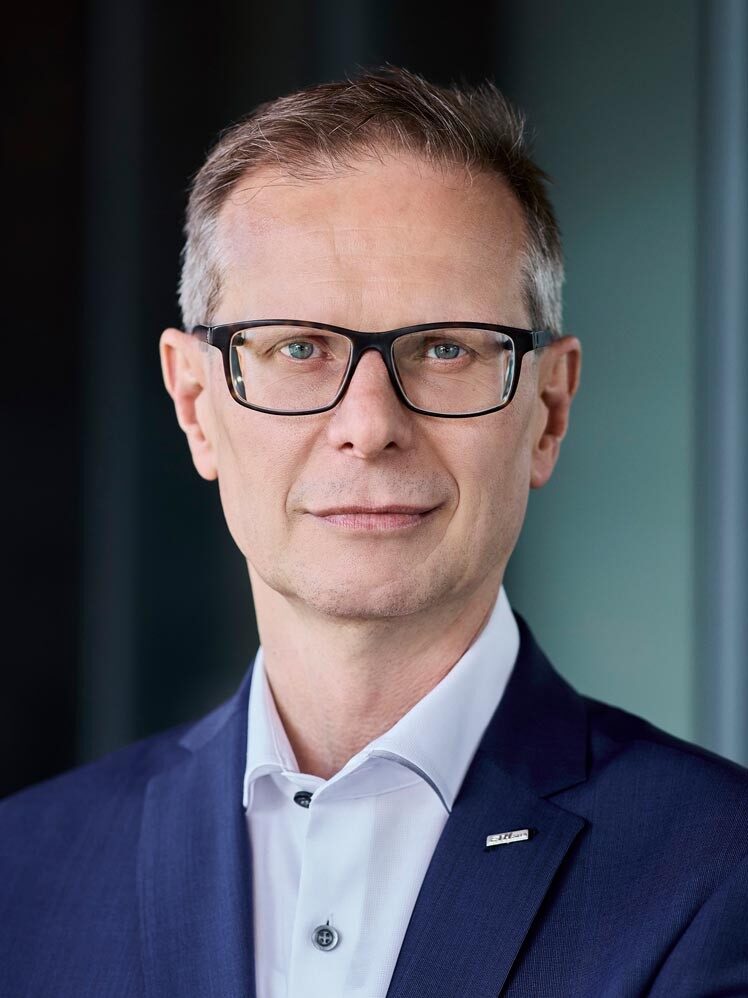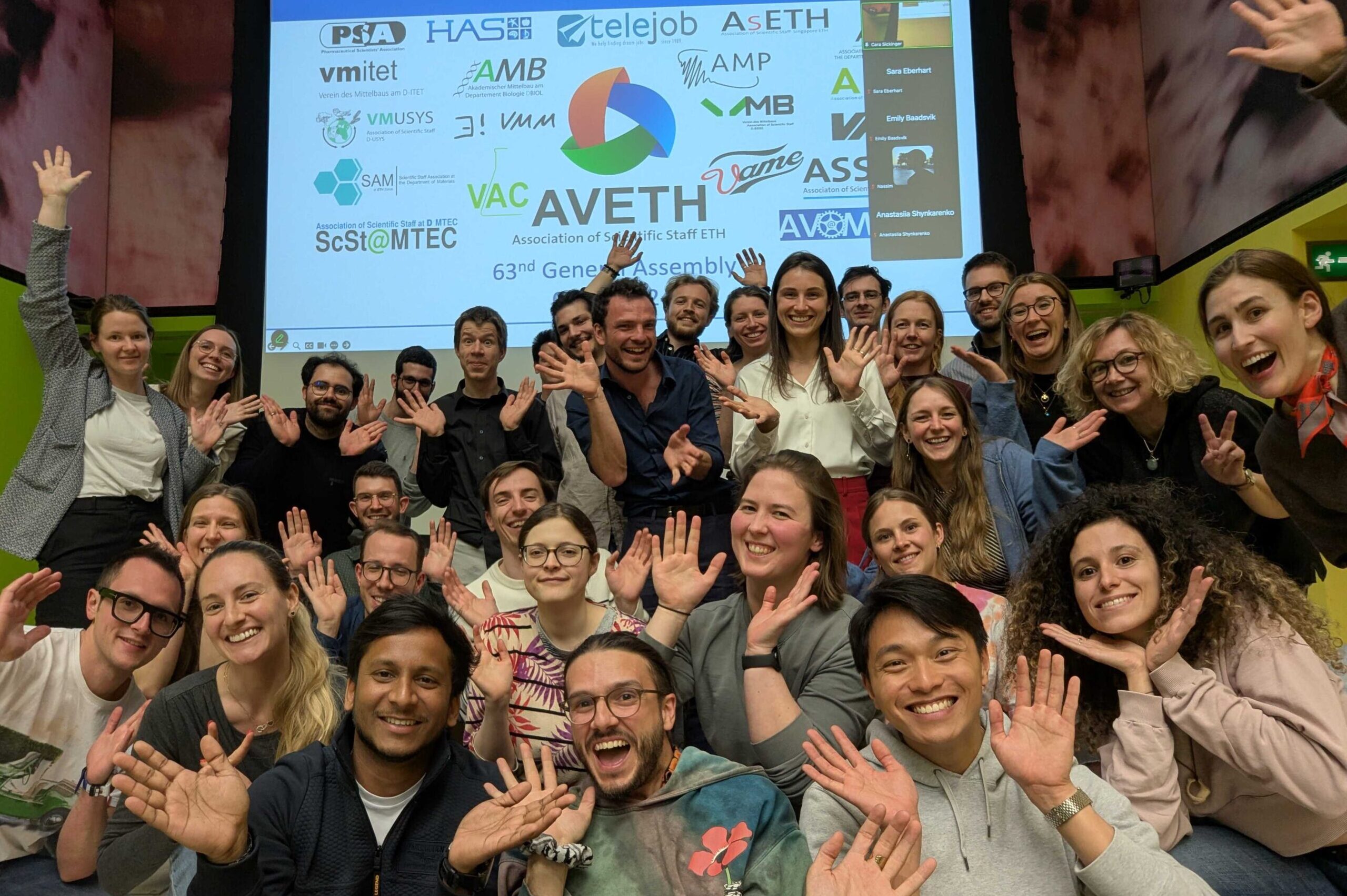1.1. Greetings from the Rector and President
A doctorate is research at the cutting edge of science and technology and proves that you can complete a project on your own in a given time. It is also a teaching experience where you learn to explain the basic principles of science and engineering to the next generation of undergraduate students. While you are asked to excel in science and explore unknown territory – a modern form of adventure – you need a solid foundation to build upon, a private infrastructure, friends and colleagues in a similar situation, and if you come from abroad some help to understand and settle down into Swiss culture. The AVETH team took the initiative to write this Survival Guide to support you during this challenging period of your life. It offers answers to many questions, points out various pitfalls, and offers practical advice on avoiding them. ETH Zurich offers excellent working conditions in your field of interest: an innovative and competitive atmosphere, state-of-the-art laboratories, and an environment that promotes access to the world’s best scientists, engineers, architects and mathematicians. Being part of this team is highly rewarding and provides many opportunities to grow. A career both in academia and in the business world requires additional capabilities, e.g., social skills, critical thinking, understanding the language of other disciplines, and taking responsibility for our society. To acquire these skills, there are a plethora of opportunities to attend lectures and seminars in your own field of research, in other areas, and in social sciences and humanities both at ETH and at the University of Zurich. You should also remember the importance of physical fitness and take advantage of the many opportunities offered by ASVZ. Moreover, Zurich is a great town for music, theatre and other cultural activities. In a few years’ time, you will receive your doctoral degree at a graduation ceremony, a degree that not only proves that you „survived“ ETH Zurich, but also that you were able to understand and solve some of the most complex problems of our world and that you have learnt to work and live with many other international cultures. We wish you all the best for this exciting and challenging period of your life!

Prof. Dr. Joël Mesot – President of ETH Zurich

Prof. Dr. Günther Dissertori – Rector of ETH Zurich
1.2. Greetings from the AVETH team
Dear doctoral student and scientific staff, the AVETH team welcomes you at the start of this new phase in your life. You have successfully graduated in your respective field and find yourself interested in research – congratulations! You are considering or have already started a doctorate at ETH Zurich, the Swiss Federal Institute of Technology. The next few years will be filled with exciting research topics, building your professional network by meeting other researchers, visiting international conferences and making friends for life. At the same time however, you may be new to ETH Zurich, Zurich itself or even Switzerland. Things might seem complicated to you, and with approximately 21’000 students, of which 4’000 are doctoral students, ETH Zurich may seem like a giant labyrinth at first. Consequently, the AVETH team decided to create this Survival Guide to aid you throughout this new phase. AVETH is the association of scientific staff at ETH Zurich. We represent all doctoral students, post-docs and senior researchers. We are responsible for the political representation of your rights and interests, organizing social activities and offering consulting services. This book is designed to help doctoral students discover the objectives, possibilities and consequences of being an ETH student, employee, researcher and teaching assistant – all at the same time. It will give you information ranging from ETH Zurich and writing your doctoral thesis to offering practical insights and support for everyday life. The survival guide is organized according to the timeline of a typical doctoral study period, starting with the choice of supervisor, the application and registration process and continuing to finalizing your doctorate. It provides insights on moving to Switzerland from abroad, finding accommodation and starting your project. It also contains information on how to get involved in activities in your free-time. The latest additions have been directly taken from the sites that they refer to, to make the content more approachable for you as a reader. We are very happy to present you the sixth edition of the Survival Guide. The first edition was published in 1998 after a survey revealed the need for a handbook for doctoral students. The current AVETH team would like to thank all previous participants and volunteers who put so much work into the guide. From our side, we would like to wish you all the best for a successful research career and a wonderful time at ETH. – The AVETH team –
1.3. Doctorate Motives and Implications
There are numerous reasons why one would want to pursue a doctoral degree. It is definitely true that a doctoral degree opens up career paths that would not be accessible without a post-graduate degree, however, it also closes doors to other jobs. The title is essential if one wants to stay in academia on the path to a senior researcher position or even a professorship. It is also useful if one is looking to move into industrial research. But make no mistake: a doctoral degree usually takes between three and up to six years of labor, during which you are likely to struggle at one point or another. Compared to your previous degrees, you cannot rely on prepared material to learn from and simply pass examinations. Instead, a doctorate takes a great deal of self-motivation and means a lot of work and constant reflection. Hence, our only recommendation is to choose a subject that you are actually interested in and a supervisor with whom you feel to have a good relationship and communication. The style of management of your supervisor needs to be compatible with your style of work in order to ensure collaboration and overall experience. It’s worthwhile trying to predict what kind of scientific specialization will provide you with an advantage on the job market after your doctorate, but this often proves difficult because the job market changes and might differ once you are finished. We have included a whole section on career advice after the doctorate in the subchapter titled “Career Services”.
“Nobody is born a researcher; you have to become one. Studying for a Ph.D. will probably be the last, but most decisive stage in the life of a young person who wants to devote him- or herself to the organized search for a greater understanding of the natural and social world. This includes the ability to produce, control and manipulate new phenomena, instruments and other artifacts.” – Helga Nowotny –
Studying for a Doctorate is the crucial phase in which a professional identity is formed and when socialization takes place. With socialization a process is meant in which previous experiences and an identity are actively reconstituted. Up to this point, much of one’s life has already been dedicated to learning. However, the previous experience differs from what happens now. For the first time, Doctoral students are challenged to actively intervene in the observation and manipulation of a physical reality. In the previous stages of their education, students had to show their mastery of the content of an object world and the appropriate methods for examining it, essentially by digesting knowledge that had been didactically prepared for them. They learned how to put it to use. But in order to do so, the problems had to be carefully defined and purposefully selected by their teachers. In general, solutions were known, the conceptual frameworks of reliable knowledge were given, and methods and procedures were standardized and had only to be learned. Students were introduced to a world of research in which their teachers had laid out for them the pathways through which the known destinations could be reached by well proven and validated means.
Entering the Doctorate stage means leaving learning through imitation behind. Students are now expected to do research on their own. They are no longer supposed to act within a frame of knowledge which is given, but strive for an active synthesis which includes what is already known, however, also what is yet to be found. The method and meaning of learning change. Studying for a Doctorate means to become an active producer of new scientific knowledge and technological artifacts. It is easy to see why this can be such a frightening experience at times. It marks the shift from the “mere” reproduction of knowledge to production; from dependence on those who have selected for you what you are supposed to know to a state of independence which requires and results in the originality of ideas, finding new approaches or trying out new methods. Students are expected to become similar to those whom they identify with as top researchers. Their most proximate role models are their supervisors. For the students, the supervisors represent at the same time the professional audience and the wider scientific community who will evaluate their future work. At the end, a different set of attitudes, skills and behavior will emerge, more suitable for the norms and constraints of the professional world, the membership of which Doctoral students aspire to.
Empirical studies on how Doctoral students internalize their future profession as researchers demonstrate the difference in attitudes between students beginning Doctoral work and attitudes held by those who are near completion. The most striking change between early vs. late students, one study concluded, was the way in which the students integrated their sense of being an autonomous individual into their overall new identity. Initially, their sense of self was in conflict with a “personal morality” dimension of values. By the end of training, the sense of self became increasingly associated with drive, ambition, competitiveness and willingness to assume responsibility, and less with flexibility and the pursuit of scientific curiosity for its own sake. The students had learned that failure was their own responsibility (Hill, 1995). Another study examined the effects of socialization on male and female students in technology. The results show that while significant differences between female and male students remained, with female students emphasizing caring norms more strongly, students initially emphasized caring-related norms more strongly than junior researchers who had completed their studies. In other words, socialization continues at the work-place, making men and women more alike. This is a gendered process in the sense that masculine values were promoted, while caring values lost out (Sørensen, 1992). However, this must not necessarily remain so in the future.
1.4. Changes in Knowledge Production
Working for a doctorate is not an aim in itself, despite the intrinsic gratification it may confer. It is supposed to prepare graduate students for what was once meant to be the only desirable career as a scientist: a life dedicated to science and research, preferably within the university or in a comparable research-intensive setting like an industrial institute. Unfortunately, the times in which there was a reasonable expectation that a doctorate would open up predictable and secure avenues and in which scientific careers came with the prospect of life-long employment are changing all too rapidly. Only a small fraction of those studying for a doctorate will end up in what used to be a traditional university career structure, which itself is undergoing profound change.
The vast majority of doctoral students will find themselves distributed throughout society across an increasing number of sites where recognizably competent research is being carried out. The interactions among these sites have set the stage for an explosion in possible configurations of knowledge and skills. The result can be described as a socially distributed knowledge production system in which communication increasingly takes place across existing institutional boundaries and where knowledge production takes place in specific contexts of application (Gibbons et al, 1994). Doctoral students are rapidly becoming part of this new mode of knowledge production and there is a growing awareness that many problems demand a more interdisciplinary or even transdisciplinary approach. If training inside universities, including training for a doctorate, does not seem to accommodate or encourage more interdisciplinary interaction and communication, it is mainly for the reason that university teaching is still predominantly organized according to disciplinary boundaries. Students are supposed to become socialized into what is still felt to be most important, namely to acquire a professional identity which is discipline-based. However, it is becoming increasingly obvious that a cognitive identity rooted within one discipline must be accompanied by a capacity for inter- or transdisciplinary cooperation. These tendencies have long been recognized within ETH Zurich, although a densely-packed curriculum and severe time constraints do not easily lend themselves to the accommodation of the need or the desire of many students for greater exposure to inter- or transdisciplinary studies.
ETH Zurich’s Collegium Helveticum, located in the Semper-Sternwarte, offers an excellent intellectual space for a small group of highly motivated and competent doctoral students to continue work on their doctoral dissertation in a stimulating atmosphere where different research cultures meet. If you are looking for more than survival, join us.
1.5. Why choose ETH Zurich?
Once you decide to pursue a doctoral degree, the next step is the choice of university and research group. Many different factors will contribute to this decision, such as the reputation of the university and the group, the availability of a position and funding, in addition to personal ties with a specific location and the distance from one’s friends and family. ETH Zurich can be considered as a wonderful place to do a doctorate; due to its excellent working atmosphere, working conditions and research, not to mention the city of Zurich as a place to live. ETH Zurich often features in the top ten or twenty of international university rankings, especially in the fields of architecture, natural sciences and engineering .[1-3]
The many departments, institutes and professors practically cover the full range of research in the aforementioned disciplines, allowing for a fluent interdisciplinary exchange and innovative scientific projects. The city of Zurich is in a prime location on Lake Zurich with the Alps right on the doorstep, allowing for skiing, sailing, hiking and many more outdoor activities. The city itself is also a well-known international financial hub. Hence, there are plenty of restaurants, bars, shops and, of course, excellent transport connections via the airport and the world-famous Swiss railway system. We will provide more details and insights on the city in the chapters ahead.
[1] www.topuniversities.com [2] www.timeshighereducation.co.uk [3] www.arwu.org
1.6. References
Gibbons, Michael et al. (1994) The New Production of Knowledge. Sage Publications Ltd, 192. Hill, Stephen C. (1995) The Formation of Identity as a Scientist. Science Studies, 8, 53-72. Nowotny, Helga, Peter Scott and Michael Gibbons (2001) Re-Thinking Science. Knowledge in an Age of Uncertainty. Oxford: Polity. Sørensen, Knut H. (1992) Towards a Feminized Technology? Gendered Values in the Construction of Technology. Social Studies of Science, 22, 5-31.











